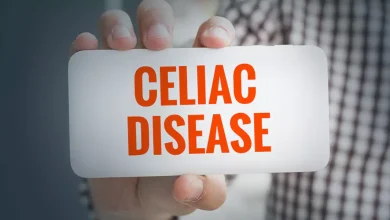What is Atrial Fibrillation?

What is Atrial Fibrillation?
Atrial fibrillation also known as Afib occurs when there is an irregular heart rhythm (arrhythmia) that starts in the upper (atria) of your heart. The normal cycle of electrical impulses in your heart is interrupted when you have atrial fibrillation which causes a chaotic and fast heart rhythm along with poor movement of blood from your atria to the lower chambers (ventricles) of your heart. Afib can result in blood clots in the heart. It also raises the risk of stroke, heart failure, and other heart-related problems. Many people don’t have any symptoms when they have atrial fibrillation but there might be a rapid and pounding heartbeat along with shortness of breath or light-headedness.
What are the Types of Atrial Fibrillation?
The types of atrial fibrillation include:
– Paroxysmal Afib
This type of Afib does not last more than one week and it normally stops on its own without any treatment.
– Persistent Afib
This type lasts more than one week and requires treatment.
– Long-standing persistent Afib
This type of Afib lasts more than a year and sometimes it’s hard to treat.
What are the Symptoms of Atrial Fibrillation?
Some people with Afib feel no symptoms. The symptoms of Afib are usually based on how fast the ventricles are beating. In case they’re beating at a normal or a little bit high pace, the chances are that you won’t feel anything. But if your ventricles are beating rapidly then you’ll begin to experience its symptoms. The symptoms of Afib usually include:
– Extreme tiredness
– Irregular heartbeat.
– Heart palpitations.
– Decreased ability to exercise.
– Dizziness
– Lightheadedness
– Fainting
– Shortness of breath
– Pain in the chest
– Weakness
What are the Causes of Atrial Fibrillation?
The most common cause of atrial fibrillation is complications with the heart’s structure.
Heart diseases and problems that might lead to AFib include:
– Congenital heart defect, a heart problem people are born with.
– Problem in the heart’s natural pacemaker, known as sick sinus syndrome.
– Obstructive sleep apnea, a sleep disorder.
– Heart attack.
– Heart valve disease.
– High blood pressure.
– Lung diseases, such as pneumonia.
-Blocked or narrowed arteries, known as coronary artery disease.
– Thyroid disease like an overactive thyroid.
– Viral infections.
Stress or sickness because of heart surgery might also result in AFib.
Lifestyle habits that might prompt an AFib episode might include:
– Drinking too much caffeine or alcohol.
– Drug abuse.
– Smoking or using tobacco in any form.
– Taking medicines containing stimulants, such as allergy and cold medicines without a prescription.
What are the Risk Factors of Atrial Fibrillation?
The risk factors of Afib include:
– Ageing
The risk of AFib increases with growing age.
– Nicotine, caffeine, or illicit drug use.
Consuming nicotine, caffeine and some illicit drugs like cocaine and amphetamines might make the heart beat rapidly. Taking these things might result in the development of more severe arrhythmias.
– Drinking high amounts of alcohol
The electrical signals in the heart might get affected if you drink too much alcohol which raises the risk of atrial fibrillation.
– Changes in the level of body minerals
Minerals in the blood called electrolytes including sodium, potassium, magnesium, and calcium help the heart to beat and if any of these minerals are too high or too low then you might develop irregular heartbeats.
– Heart problems or heart surgery
If you have heart valve disease, coronary artery disease, and heart problems from birth then your risk of developing Afib might increase. If you had a heart attack or heart surgery before, then your risk of this condition increases.
– High blood pressure
If you have high blood pressure, then it might make a portion of your heart thick and stiff which can alter how your heartbeat signals travel through the heart. It increases your risk of developing Afib.
– Obesity
Obese people are at higher risk of developing atrial fibrillation.
– Other long-term health diseases
Your risk of getting AFib increases if you have some other health complications such as chronic kidney disease, lung disease, diabetes, or sleep apnea.
– Thyroid disease
If you have an overactive thyroid gland then the risk of irregular heartbeats rises.
– Family history
If you have a close family member with Afib, then you also have a higher chance of developing it.
What are the Complications of Atrial Fibrillation?
Blood clots are one of the main and dangerous complications of atrial fibrillation (AFib) which can result in stroke.
The other complications of atrial fibrillation include:
– High blood pressure.
– Diabetes.
– Heart failure.
– Heart valve diseases.
How Atrial Fibrillation is Diagnosed?
Your doctor will examine and ask you questions about your symptoms and medical history to diagnose Afib. Tests might be carried out to determine the conditions that can lead to irregular heartbeats, like thyroid or any heart disease.
Tests to diagnose atrial fibrillation might include:
– Blood tests
Blood tests are done to detect substances or health conditions that might be affecting your heart or heartbeat.
– Electrocardiogram (ECG or EKG)
It’s a painless and fast test to measure the electrical activity of your heart. Sticky patches known as electrodes will be attached to your chest and sometimes in the leg and arms. Wires link the electrodes with a computer to display or print the results of the test. An ECG shows the heart rhythm and how fast or slow the heart is beating. It’s the primary test to diagnose atrial fibrillation.
– Holter monitor
It’s a portable and small ECG device that helps to record the heart’s activity. You need to wear it for one or two days while doing your normal daily activities.
– Event recorder
This device is similar to a Holter monitor, but it records only at specific times for some minutes at a time. Usually, you have to wear it for nearly a month. You need to push a button the moment you feel the symptoms. A few devices automatically record if an irregular heart rhythm is found.
– Implantable loop recorder
It records the heartbeat consistently for nearly three years. It’s also known as a cardiac event recorder. This device shows how the heart is beating while you are doing your daily chores. It is generally used to check how often you have an episode of AFib. It’s typically used to detect rare episodes of AFib among people who have a high risk of heart problems. For instance, you might require it if you’ve had an unexplained stroke.
– Echocardiogram
Here sound waves are used to produce images of the beating heart. This test helps to show the flow of blood through the heart and heart valves.
– Exercise stress tests
These tests usually include pedalling a stationary bike or walking on a treadmill while your heart is being monitored. They show how the heart is reacting while you exercise. If you are capable of exercising, you might be given a medicine that increases the heart rate the way exercise does. Sometimes an echocardiogram is carried out during a stress test.
– Chest X-ray
Conditions of the heart and lungs are shown during a chest X-ray.
What are the Treatment Options Available for Atrial Fibrillation?
The main aims of Afib treatment generally include:
– To control your heart rate.
– To get back your normal heart rhythm.
– To decrease your risk of getting a stroke.
Depending on your symptoms, medications are usually prescribed by doctors to check if they help.
Medications for the treatment of Afib might include:
– Rate control medications
They are given to stop the ventricles from beating too rapidly. Digoxin, verapamil, diltiazem, or metoprolol are examples of these medications.
– Rhythm control medications
These medications are given to keep your heart beat in a normal rhythm. Examples include disopyramide, procainamide, flecainide acetate, sotalol, propafenone, amiodarone, or dofetilide.
– Blood thinners
Also called anticoagulant medications, these are given to decrease the risk of stroke and blood clots. Examples include aspirin, warfarin, or warfarin alternatives.
It’s important to discuss with your doctor about all the risks and side effects of these medicines because generally almost all medicines for Afib have side effects but the results of these medicines outweigh the side effects.
Surgeries and other procedures.
If medications are not working then you may require a procedure or surgery.
– Electrical cardioversion
Here low-energy shocks are used to electrically reset your heart rhythm, but usually, it’s only a temporary solution.
– Pulmonary vein ablation
Catheters are used in this procedure to provide energy outside and near your pulmonary veins which helps you to respond to your Afib medications in a better way. You might not even require medications for the long term.
– Pacemaker
If you have a slow heart rate then a permanent pacemaker might be attached to your heart to normalise your heartbeat. It’s normally used only if you have another arrhythmia along with Afib.
– Left atrial appendage closure
It’s a process that decreases your risk of stroke and blood clots.
– The MAZE procedure
Scar tissue is created in this procedure to help your heart’s electrical impulses travel in the right way. This procedure carries a high rate of success. It’s usually recommended when you have a history of stroke or blood clots and severe Afib symptoms.
Living with Atrial Fibrillation
Atrial fibrillation is a complicated heart problem that might be overwhelming, stressful, or confusing. If you suspect that you may have Afib, have been diagnosed recently, or have lived with it for many years, you should know that you are not alone. There are millions of people along with you who are coping with this condition and are learning new ways to manage Afib while still leading a normal life. It’s very important to discuss it freely with your doctor and learn more about support groups and available resources to deal with Afib. All medications or procedures for this condition have some risks but getting the right treatment is vital to support your heart and decrease your chances of getting a stroke. With proper treatment, a healthy lifestyle, and monitoring you can live a healthy and long life with atrial fibrillation.
Whom to Consult?
If you notice symptoms of atrial fibrillation in you or anyone you know, you shall make an appointment with your doctor for a health checkup. Your doctor might refer you to a cardiologist, a doctor trained in heart diseases. If you feel chest pain, you should immediately go for medical assistance because chest pain could mean that you might be having a heart attack.






